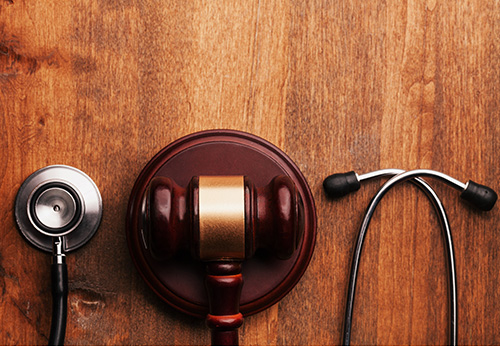Frequently Asked Questions About The SSD Claims Process
 What Role Do Healthcare Professionals Play In The Claims Process?
What Role Do Healthcare Professionals Play In The Claims Process?
Unfortunately, your doctor is not going to sit down and fill out your disability application for you. Even still, their role is so important – especially if they recommend that you apply for disability and that recommendation shows up in your medical records.
As far as the application process itself goes, your healthcare professionals won’t participate. They may recommend that you apply for disability or seek disability, but a provider won’t help you apply for SSD benefits.
Do Factors Like Age, Education, & Work Experience Matter When It Comes To Being Approved For SSD Benefits?
Age, education, and past relevant work are some of the most critical factors in any SSD claim. Certain jobs are automatically unavailable to people at certain ages, educational levels, skills that transfer from past relevant work or those without past relevant work experience. (“Past relevant work experience” is work that was done for six months or more during the last 15 years).
To accommodate these factors in each case, the social security department offers GRID rules. GRID rules are medical-vocational guidelines that are used to help get people approved for disability.
For example, at the age of 50, there is a GRID rule that can apply to your case. Then another GRID rule will apply at age 55, and yet another will apply at age 60.
Generally speaking, the social security administration gives greater preference to cases as the applicant gets older. As a result, the younger you are, the harder it is to win a social security disability case.
What Factors Play Into An SSD Application Getting Approved Or Denied?
At the end of the day, an approval or denial comes down to what your medical evidence supports as to exertional (physical) or non-exertional (mental) limitations.
Physical disability claims need to answer questions like:
- Do you have a physical impairment?
- Do you have objective medical evidence to support the diagnosis given to you by your doctor?
- What symptoms are you presenting?
- What is recorded in your activity of daily living and pain forms?
- What are you using as testimonial evidence at the hearing?
- Is the diagnosis of your symptoms supported by objective evidence?
- And more…
Mental disability claims need to answer questions like:
- Do you have a mental impairment?
- Do you have evidence to support the diagnosis given to you by your doctor?
- What non-exertional issues does your disability cause?
- Are you following the prescribed treatment?
- Despite the prescribed treatment, do these non-exertional limitations interfere with your ability to obtain or maintain employment?
- (It should be said that: “Non-exertional” limitations in these cases often look like difficulty interacting with others (such as co-workers, supervisors or general public), ability to maintain concentration and pace to stay on task, and deal with normal work stress without getting emotional overwhelmed, and other things that make it hard for you to remain at work or be a dependable employee.)
- And more…
What Happens When You Receive SSD Benefits?
Once your claim is granted, you will receive a Notice of Award. Depending on the stage at which your case is approved, your Notice of Award may include a statement outlining the amount of backpay to which you are entitled. Having an experienced attorney who understands social security disability is very helpful in understanding all of the notices and letters a claimant receives from the social security administration after they have won their case. An experienced attorney that represented the claimant in helping get the disability benefits, will be extremely helpful in explaining to the claimant all of the benefits to which they are entitled.
For more information on Social Security Disability Law In Arkansas, a free initial consultation is your next best step. Get the information and legal answers you are seeking by calling (866) 253-2226 today.

You Deserve The Best, Get Help Today
(866) 253-2226

